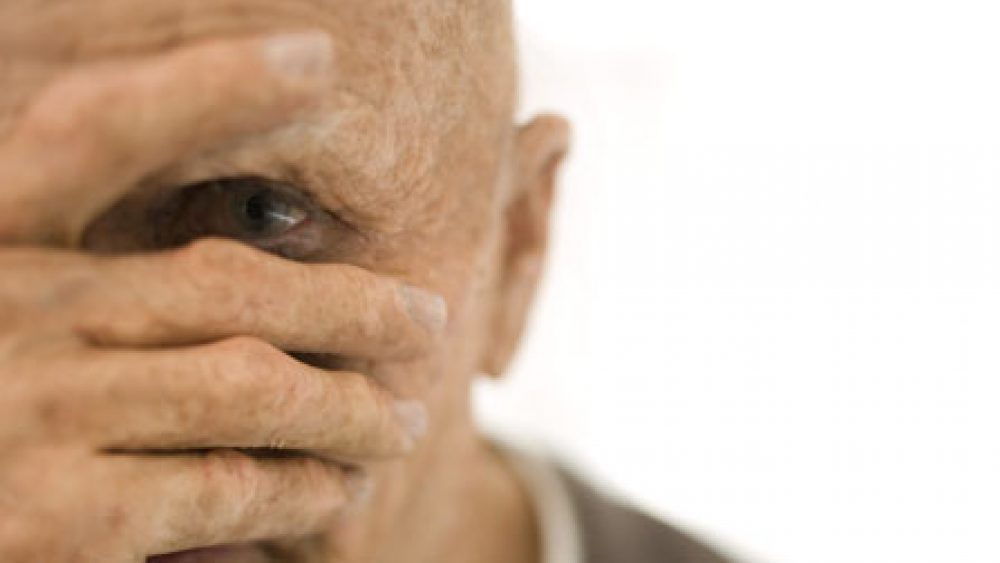| Schaep |
|
 |
 |
|
 Posted 12-01-2010 3:26 by Schaep Posted 12-01-2010 3:26 by Schaep |
      |
|
quote:
What are you laughing at?
It's the oldest jibe in the book: 'Americans just don't get irony.' But they do, argues comedian Simon Pegg - our national senses of humour have more in common than we like to think
You could spend a lot of time exploring the differences between British and American comedy only to reach the conclusion that, ironically, they're pretty much the same. Back when director Edgar Wright and myself were writing our debut feature, Shaun Of The Dead, we were certainly banking on a comic universality in the story of a suburban waster battling the living dead. We had every confidence that the humour would translate. Indeed, we made only one subtle dialogue adjustment during the writing process, changing the word "pissed" to "drunk", so as to avoid any confusion between the conditions of being munted and mardy. The film went on to enjoy surprising success in the US, suggesting that surmounting the supposed gulf between our respective senses of humour requires nothing more than a light skip.
When it comes to humour, however, there is one cultural myth that just won't die. You hear it all the time from self-appointed social commentators sat astride high horses, dressed as knights who say, "Ni". They don't get it. They never had it. They don't know what it is and, ironically, they don't want it anyway. That's right: "Americans don't do irony." This isn't strictly true. Although it is true that we British do use irony a little more often than our special friends in the US. It's like the kettle to us: it's always on, whistling slyly in the corner of our daily interactions. To Americans, however, it's more like a nice teapot, something to be used when the occasion demands it. This is why an ironic comment will sometimes be met with a perplexed smile by an unwary American. Take this exchange that took place between two friends of mine, one British ( , the other American (A): , the other American (A):
B: "I had to go to my grandad's funeral last week."
A: "Sorry to hear that."
B: "Don't be. It was the first time he ever paid for the drinks."
A: "I see."
Now, my American friend was being neither thick nor obtuse here; he simply didn't immediately register the need to bury emotion under humour. This tendency is also apparent in our differing use of disclaimers. When Americans use irony, they will often immediately qualify it as being so, with a jovial "just kidding", even if the statement is outrageous and plainly ironic. For instance...
A: "If you don't come out tonight, I'm going to have you shot... just kidding."
Of course, being America, this might be true, because they do all own guns and use them on a regular basis (just kidding). Americans can fully appreciate irony. They just don't feel entirely comfortable using it on each other, in case it causes damage. A bit like how we feel about guns.
It's not so much about having a different sense of humour as a different approach to life. More demonstrative than we are, Americans are not embarrassed by their emotions. They clap louder, cheer harder and empathise more unconditionally. It's an openness that always leaves me feeling slightly guilty and apologetic when American personalities appear on British chat shows and find their jokes and stories met with titters, not guffaws, or their achievements met with silent appreciation, rather than claps and yelps. We don't like them any less, we just aren't inclined to give that much of ourselves away. Meanwhile, as a Brit on an American chat show, it's difficult to endure prolonged whooping without intense, red-faced smirking.
Of course, it's the mainstream output of our respective entertainment industries that tends to shape our general opinion of each other. Ask the average American what they perceive British comedy to be and you will most likely be quoted shows such as Benny Hill and Are You Being Served? (although, thanks to BBC America, this is beginning to change). The fan demographic for both shows is markedly more diverse than in their country of origin. This is probably due to their parochial peculiarity, rather than the quality of the comedy (although both shows had their moments) and perhaps explains why the American audience took to Shaun Of The Dead with such affection. A refusal to occupy that transatlantic middle ground that sometimes scuppers British films intent on appealing in America means that the film plays as resolutely British. That approach does risk certain social and cultural references being lost in translation. But not many. The only joke in Shaun Of The Dead that never got a laugh in the States was Ed's request for a Cornetto ice cream at 8am on a Sunday morning. Overall, the cast's understated reserve in the face of flesh-eating zombies just added another layer of amusement for American viewers.
When it comes to their mainstream, America's emotional openness has often given way to a sentimentality that jars with our more guarded and cynical outlook. This is why the initially enjoyable Happy Days became blighted by saccharine lessons in family values, as Henry Winkler's originally subversive Fonzie was mercilessly appropriated by the middle-class American family, castrated by Marion Ross's Mrs Cunningham and forced to sit on it (although it's interesting to note that in outtakes from the series, Winkler and Ross would often play out an irresistible sexual tension between them with stolen gropes and kisses, solely for the enjoyment of the live studio audience, hinting at darker, more interesting themes than the show itself ever tackled). Generally speaking, sentimentality isn't easy for us. It makes us nervous and uncomfortable. We become edgy and dismissive of these brazen displays of emotion.
As the global village conurbates, however, our emotional habits are shifting. We are easing towards a slight liberation from our national inhibitions - although hopefully not losing them completely. Our uptightness is, after all, a huge part of our charm. The sitcom Friends, for instance, a show often dismissed by the cynical as "cheesy" or "schmaltzy" - and certainly capable of being both - was wholeheartedly adopted by the British public. So much so that two years after its final episode, a day barely passes without its inclusion in the schedules. Could it be any more ubiquitous?
I hated Friends when it first aired. The very title was anathema to me. It immediately evoked the embarrassing, droopy-eyed longings of the sickeningly hug-happy new American youth. The thought of all that togetherness, untempered by ironic undermining, made my skin crawl. Yet it drew me in. Due to a fine ensemble cast and some genuinely funny scriptwriting ("You're over me? When were you under me?"), Friends was readily accessible, even to us closed-off Brits. In fact, it arguably even opened us up a little. I certainly went from sneery to teary at Ross and Rachel's passionate, reconciliatory smooch. This moment might actually hold the key to a middle ground between British and American humour, specifically when it comes to heartfelt, emotional expression. The British aren't against it; we just believe it comes at a price. The success of the emotional climax in that particular scene is due entirely to the comedy preceding it. Ross's perm, Monica's fat suit, Rachel's nose all go toward setting the tone for the payoff, which the audience wholeheartedly accept. The sentiment is a reward, rather than a device to engender a sympathy laugh or, worse, a big, soppy, "Awww".
This device works in the best situation comedy on both sides of the Atlantic. The difference is perhaps simply that the average American is prepared to accept it sooner. Still, who could deny Del Boy a tearful pat of Grandad's chair, after his Keaton-worthy tumble through the wine bar? Or scoff at the field of poppies that fills the screen at the close of Blackadder Goes Forth? Similarly, Hawkeye's breakdown in the final M*A*S*H or Sam's switching off the lights of the Cheers bar for the last time both suggest we are prepared to take our comedy with a side of emotional drama. So perhaps we're not so dissimilar, after all.
One of the best exponents of worthy sentiment is a show that could easily be argued to be the greatest sitcom the US has ever produced. A razor-sharp, joyously dumb and potentially endless treatise on the American family and its suburban environment, The Simpsons is a remarkable show in that, in what is essentially a children's medium, it has established itself as a constant and often highly critical reflection of America itself. Hiding its subversiveness in bright colours and absurd situations, it has made satirical comment on virtually every aspect of America, rehearsing ideas that are at times positively "un-American". Yet at the same time the show exudes an enormous warmth and sentimentality, and holds at its heart great positivity about the linchpin of the American dream: the family. George Bush Snr once declared that Americans should be more like the Waltons and less like the Simpsons. Simpsons' creator Matt Groening responded, saying, "Hey, the Simpsons are just like the Waltons. Both families are praying for the end of the Depression."
Scratch the surface of US comedic output and you will find many more such gems. Shows such as Arrested Development, Family Guy, Curb Your Enthusiasm and The Larry Sanders Show all display a highly sophisticated sense of irony. But it's not just the more subversive end of comedy that disproves the myth: Saturday Night Live, The Simpsons, Futurama, Seinfeld, M*A*S*H (despite being wounded by canned laughter), Roseanne, Frasier, My Name Is Earl, to name a few, have all made an impact on America's popular consciousness. The Office is a perfect example of how edgier comedy can work on a grand scale on both sides of the Atlantic. The British and American versions have their own cultural and emotional specificities, but both work as painful satires on a lifestyle familiar to millions of Britons and Americans alike.
With the whole "Americans don't do irony" thing cleared up and consigned to the dustbin/garbage pail of passive/aggressive international preconception, we come to mine and Edgar Wright's latest filmic effort, Hot Fuzz. A film that we hope surfs the wave of subtle difference between our two countries, until it crashes red and frothy on to both shores. As if Tony Scott were to guest-helm an episode of Heartbeat, Hot Fuzz takes the most shamelessly histrionic excesses of American cinema and smashes them into that conservative and profoundly territorial enclave of Britishness, the country village, never once faltering in the assumption that everyone out there will understand. After all, we may all be different, but we're all capable of getting the same joke. In a world beset by prejudice and difference, how ironic is that?
· Hot Fuzz goes on general release on Friday.
http://www.guardian.co.uk/film/2007/feb/10/comedy.television
 |














